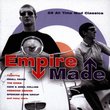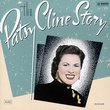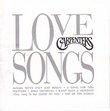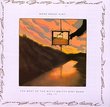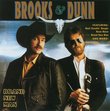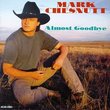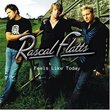| All Artists: Peggy Lee Title: Peggy Sings the Blues Members Wishing: 0 Total Copies: 0 Label: Music Masters Jazz Release Date: 5/1/1992 Genres: Jazz, Pop, Broadway & Vocalists Styles: Traditional Jazz & Ragtime, Vocal Jazz, Easy Listening, Oldies, Vocal Pop, Traditional Vocal Pop Number of Discs: 1 SwapaCD Credits: 1 UPCs: 016126500522, 016126500546 |
Search - Peggy Lee :: Peggy Sings the Blues
CD DetailsSimilar CDs
Similarly Requested CDs
|
CD ReviewsJazzy Blues Gregor von Kallahann | 07/11/2005 (3 out of 5 stars) "A few years ago in a year-end wrap-up "honoring" recently departed, THE NEW YORK TIMES MAGAZINE ran a somewhat disconcerting piece on Peggy Lee. I was surprised to see the Old Grey Lady referring to one of popular music's great ladies as having become something of a caricature of herself in her later years. The article, penned by a writer (Rob Hoerburger) who was admittedly too young to remember Peggy Lee from her heyday referred to the latterday Lee as something of "a national joke"--an appellation that Lee's many admirers would certainly find offensive. (The author's main point, namely that Lee was herself "in on the joke all along," probably did little to appease those offended.) Whether or not the article was a fitting tribute to a towering musical figure is, to say the least, highly debatable. But it was honest, certainly, and reflective of the experience those who came of age during the 70s and 80s might have had with this singer's music. Their first exposure to Lee was "Is That All There Is?"--something of a camp classic. In my own case, as a child of the 50s, my first exposure to Lee might be considered even more ridiculous, since I remember her as being the voice of the glamour girl mutt "Peg" in Disney's LADY AND THE TRAMP. In fact, I remembered a clip from WONDERFUL WORLD OF DISNEY of Lee doing the actual recording of the song "He's A Tramp" (doubtless the vampiest tune ever included in a Disney soundtrack). My ten-year old heart was won over at the time. Peggy Lee was hot, before I even knew what "hot" was. So like the author of the TIMES piece, I came to realize Lee's greatness in a roundabout way. (And that was the author's real point anyway). I never saw Lee live, although I would have loved to. But it is true that her TV appearances in her later did present "Miss Peggy Lee" in a somewhat compromised light. She was physically weakened, on occasion wheelchair bound, yet once she would start singing, you could forget all that. Her voice, like that of most singers, grew less agile over the years, but since she was a "conversational" singer and not a belter, it mattered less in her case than in many others'. SINGS THE BLUES, available at a discounted price, is a pretty good intro to later Peggy Lee. As you might expect, this is not raunchy, gut-bucket blues, but rather blues inflected jazz. The fact that many of these numbers were also done by Lady Day herself (a jazz legend often cited by blues enthusiasts, but certainly not a shouter) tells you pretty much what to expect. The languid take on "C.C. Rider" that opens the album pretty much tells you all you need to know. "God Bless the Child," "T'aint Nobody's Business," and "Fine and Mellow" evoke Billie Holiday but also hold up on their own. There are only occasional moments where the jazz arrangements give way to a bluesier sound. "You Don't Know" is a pleasant, slow blues, for instance. The overall jazz accompaniment, featuring notables such as Grady Tate, is certainly more suited to Lee's stylings anyway. But there doesn't seem to be much connectin between singer and band, and that's the album's biggest drawback. I would tend to suspect that the instrumental tracks were laid down, likely without even a working vocal from the singer, and then Lee was brought in over them. There's nothing of the kind of give and take between singer and band that can make for truly great jazz--or blues. Still as a bargain CD, it's a pretty good. But I wouldn't use it as an introduction to Lee for yet a younger generation. Better "Is That All There Is?" or even, as in my case, "He's A Tramp" to get a feel for the magic that was Peggy Lee at her finest. " 68 and sounding great! Samuel Chell | Kenosha,, WI United States | 08/16/2007 (4 out of 5 stars) "I've just read the review of this album at All Music Guide. Immediately reminding us that the singer was 68 at the time of the recording (1988), the writer goes on to assert, practically as a given, that she had no voice left, then complains that only half of the 12 tracks are authentic 12-bar blues. The reviewer then goes on to ridicule Gene Lees for writing so positively about Peggy in the liner notes.
Stuff it. This album is a pleasant surprise. For one thing, Peggy sounds twice as strong as on a recording she made ten years earlier ("Close Enough for Love"); for another, six authentic 12-bar blues is more than Billie Holiday recorded throughout her entire career (how many others can you think of, after "Fine and Mellow"?); finally, she's joined by top-flight musicians, most of them fine vocalists in their own right in addition to their instrumental skills (above all, drummer Grady Tate). Most importantly, the pianist on the date is Mike Renzi, who is simply the best. Period. Just a caveat or two: who's the unidentified vibes player? Or is it Renzi playing synthesized vibes? Perhaps the one slight miscalulation (out of 12 selections) was Kansas City. Peggy, or whomever, should have been overruled on the inclusion of that overdone, tired-out belter. Finally, why not a duet or two--with Grady, or maybe Jay Leonhart, or maybe both? That certainly could have been the coup de grace, making this a totally winning session, besides adding just a bit more welcome warmth to Peggy's sound on this session (sure, I know it's the blues, but we still want Peggy's intimate charm to envelop and kiss us, just like, for good luck, she kissed her whole band before a performance). This is the best Peggy Lee album I've heard since 1969's "Is That All There Is?" What Peggy is lacking in power and projection, she makes up for in interpretation and phrasing, not to mention dead-on pitch (including the intentional quarter tones). From "See See Rider" to "Tain't Nobody's Bizness and "God Bless the Child," it's hard to pick a favorite (make it "God Bless the Child"--it's tender, it's real, it's Peggy's life, whether that "child" was Peggy or Norma Delores Egstrom is very difficult to say). I'm tempted to give the session five stars to spite the other reviewer, but that may over-inflate the expectations of those listeners who have yet to hear the best of Peggy Lee from the 40s, 50s, and 60s. Nevertheless, you can pick this one up and enjoy it with apologies to no one. And don't be afraid to turn up the volume." |



